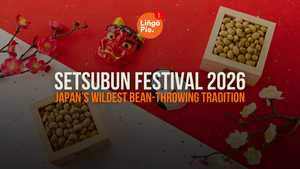As someone lucky enough to call China home for several years, let me tell you - the Dragon Boat Festival, or 端午节 (Duānwǔ Jié), is an absolute party! Celebrated annually around early June on the fifth day of the fifth lunar month, this iconic event also goes by the fitting name of the "Double Fifth Festival."
This year, this event kicks off on June 10th, launching a 3-day weekend from the 8th to the 10th that sends the entire nation into a festive frenzy. And I literally mean FRENZY!
Why? Well, the Dragon Boat Festival simply ranks among the biggest traditional Chinese celebrations, up there with the Spring Festival and Mid-Autumn Festival!
Now before you start making travel plans to join in this incredible celebration, let me give you a rundown of the festival's origins, activities, and some keywords in the Chinese language.
After all, getting to know these details will help you appreciate this festival even more!

Key Takeaways
- The Dragon Boat Festival (Duānwǔ Jié or Double Fifth Festival) is one of the biggest traditional Chinese celebrations, celebrated annually around early June on the 5th day of the 5th lunar month.
- It commemorates the legendary poet Qu Yuan, who drowned himself after being exiled, sparking traditions like dragon boat racing and eating zongzi dumplings to honor him.
- Key activities include eating zongzi sticky rice dumplings, dragon boat racing, hanging aromatic plant decorations, wearing perfumed sachets, and egg balancing games.
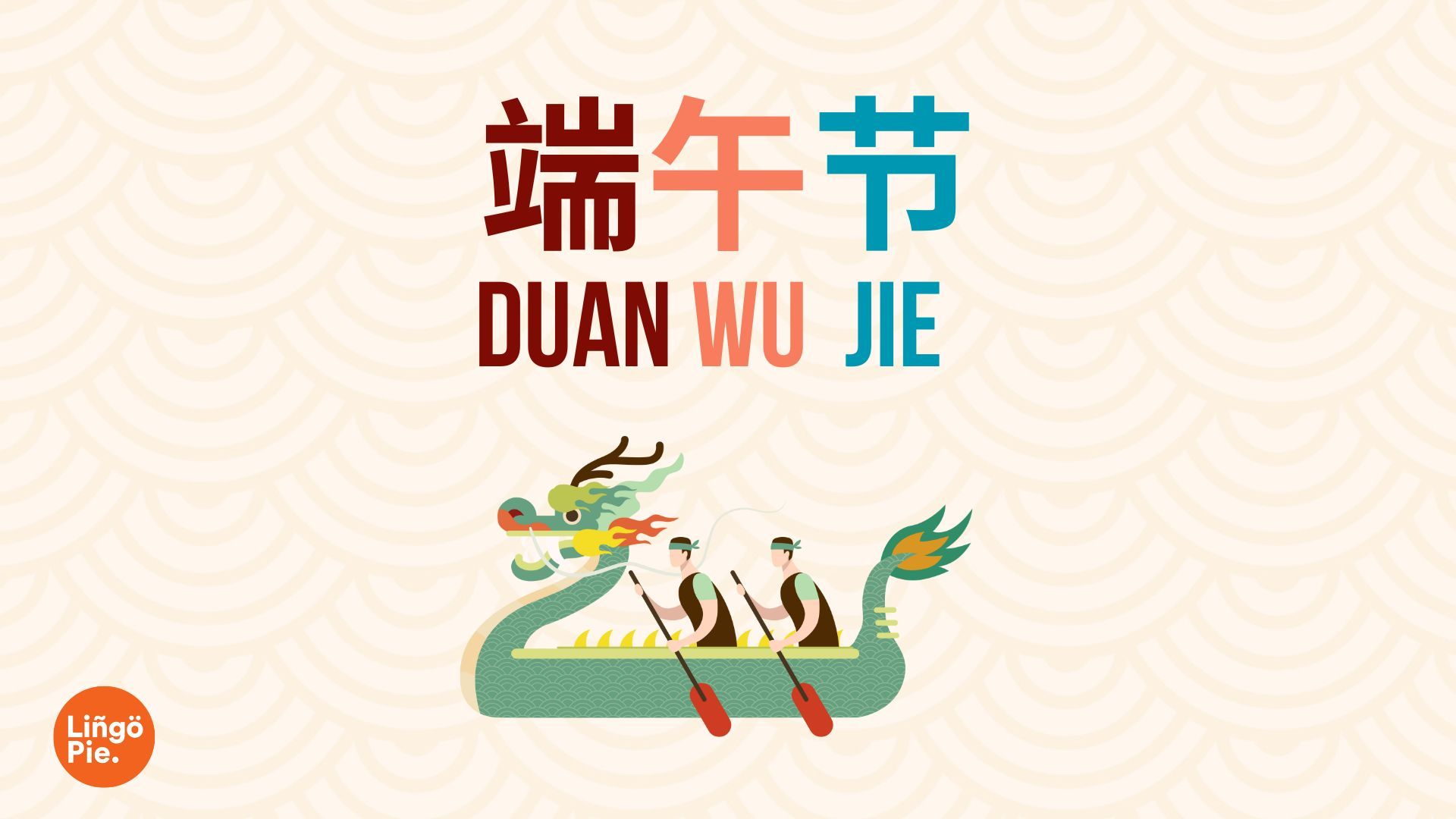
What Is The Dragon Boat Festival?
The Dragon Boat Festival has over twenty different names, each one carrying its own unique meaning and origins tracing back through the centuries. In Mandarin Chinese, the most common name is Duānwǔ Jié (端午节).
Let's break that down:
- Duān (端) comes from the word for 'start' or 'beginning'.
- Wǔ (午) refers to both 'noon' and the 'fifth solar month' on the traditional Chinese calendar centered around the summer solstice.
But that's just one of the monikers for this culturally rich celebration. Here are some of the other fascinating names the Dragon Boat Festival goes by:
- 重午/重五 (chóng wǔ)—Repetition of Noon or 5th (because it’s the fifth day of the fifth month)
- 午日节(wǔ rì jié)—Noon Day Festival
- 夏节 (xià jié)—Summer Festival
- 天中节 (tiān zhōng jié)—Mid-Sky Festival
- 艾节 (ài jié)—Mugwort/Wormwood (a herb) Festival
Like many Chinese celebrations, the Dragon Boat Festival combines folklore with commemorating legendary figures from the past. In this case, the Dragon God which is why people would offer special food and hold dragon boat races to ask for a bountiful harvest.
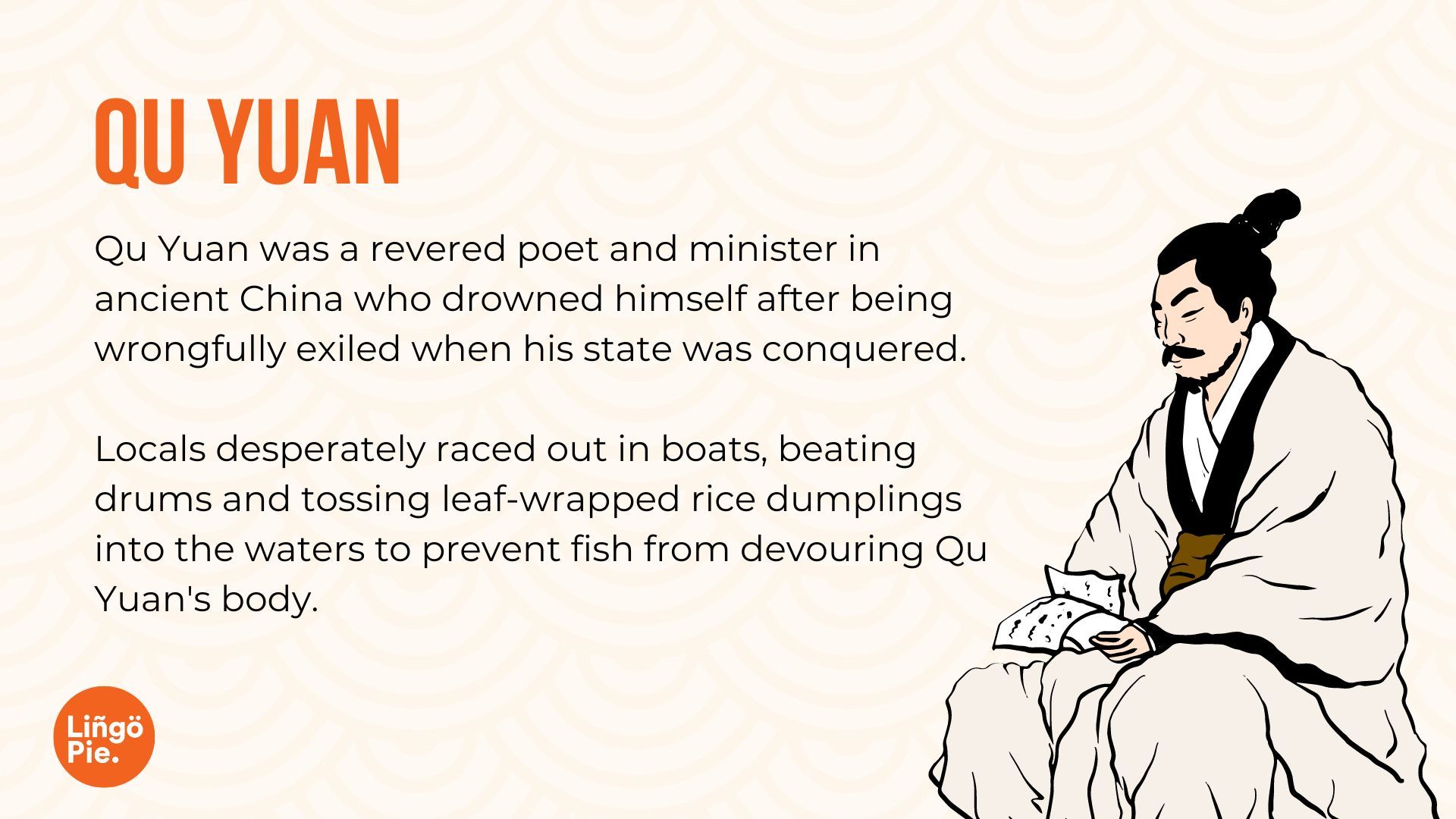
Who Is Qu Yuan?
Qu Yuan was a renowned poet and minister in ancient China during the Warring States period. Despite his loyalty, he was wrongfully exiled by the king he served. When his beloved state of Chu fell to invaders in 278 BC, the devastated Qu Yuan is said to have drowned himself in the Miluo River.
Local villagers desperately raced out in boats, beating drums and dropping rice dumplings in the water to keep Qu Yuan's body from being eaten by fish. This famous attempt to "rescue" the patriotic poet's remains became the basis for the iconic dragon boat racing and zongzi traditions celebrated during the annual Duānwǔ Jié (Dragon Boat Festival).
Qu Yuan's integrity and cultural impact as a poet made him a legendary figure. The festival activities honor his spirit and sacrifice through rituals echoing that fateful day on the Miluo centuries ago. His name has become inextricably linked to this iconic Chinese celebration.
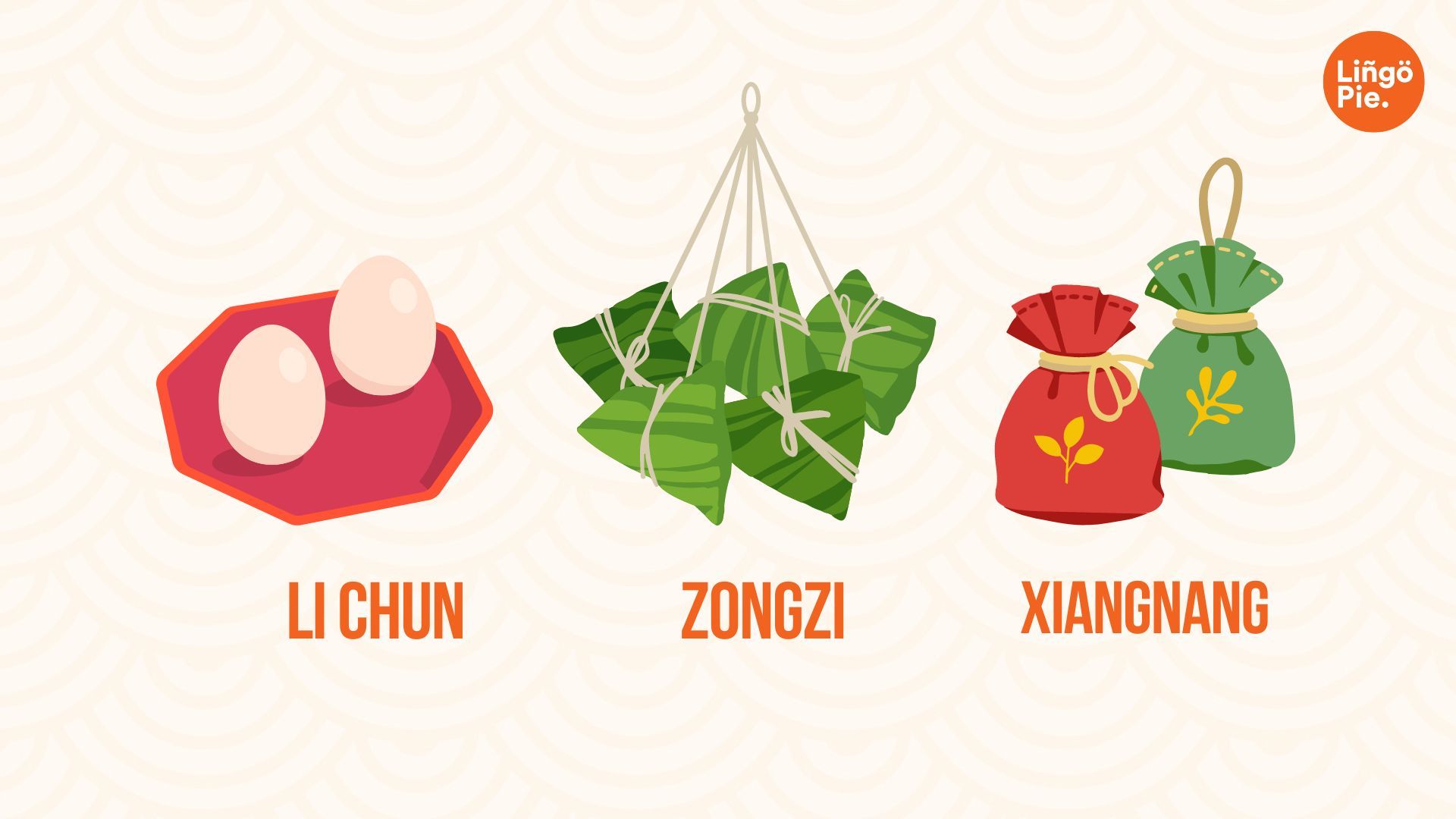
How Is The Dragon Boat Festival Celebrated?
Traditional Sticky Rice Dumplings
No Dragon Boat Festival would be complete without the iconic zongzi (粽子/zòngzi /dzong-dzuh/) - pyramid-shaped sticky rice dumplings wrapped in bamboo leaves. These compact bundles of flavor pack a serious punch, stuffed with savory fillings like pork, salted duck egg, mushrooms, and chestnuts.
Dragon Boat Racing Events
According to folklore, this tradition was born from solemn rituals to symbolically "rescue" the revered poet Qu Yuan after his defiant drowning. However, other sources indicate dragon boat racing emerged over 2,000 years ago as a way to worship the mighty Dragon God or Water God through energetic movements mimicking the undulating beast.
Today, these are known as an adrenaline-fueled event that celebrates strength, endurance, and community camaraderie.
Hanging Mugwort And Calamus Leaves
One of the most ubiquitous sights during the Duānwǔ Jié is the bundles of pungent mugwort and calamus leaves hung over doorways. This age-old practice stems from the belief that the aromatic plants helped repel insects and prevent diseases associated with the summer season when the festival falls. The distinct smells were thought to promote health and ward off evil spirits.
Wearing Perfume Pouches
Tiny silk pouches filled with aromatic dried herbs are tied to children's clothing to protect them from bad luck and evil spirits during the festival. Prepared by families, these fragrant sachets contain natural ingredients like angelica, cinnamon, and cloves believed to have medicinal and protective properties.
More than accessories, the sweet-smelling pouches symbolize ancient folk beliefs in warding off misfortune through sacred plants. Fashin-wise, the adorable perfume pouches add a touch of whimsy as kids parade around in their good luck charms embodying both tradition and modern festivity.
Egg Balancing Act
One of the most fun traditions, especially for kids, is trying to balance a raw egg vertically on its end at exactly noon on Dragon Boat Festival day. It may seem like a silly game, but there's actually an ancient belief behind it!
The idea is that the Earth's gravitational pull is supposedly strongest at that specific noontime moment during the festival. If you can defy gravity and get the egg to stand up straight, it's considered extremely lucky! Successfully balancing the egg is said to bring you good fortune and prosperity in the year ahead.
Wearing 5-coloured String Bracelet
In some regions, children wear bracelets made of braided red, yellow, green, blue, and black silk threads representing the five elemental forces.
Lovingly tied on by parents before the festival, these colorful wrist adornments were traditionally believed to protect kids from illness and misfortune by harnessing the balancing energies of the elements. Children keep the bracelets on until the first post-festival rainfall.
Though rooted in ancient Taoist folk beliefs, the vibrant talismans now symbolize the intertwining of parental love with cultural customs at the heart of the celebrations.
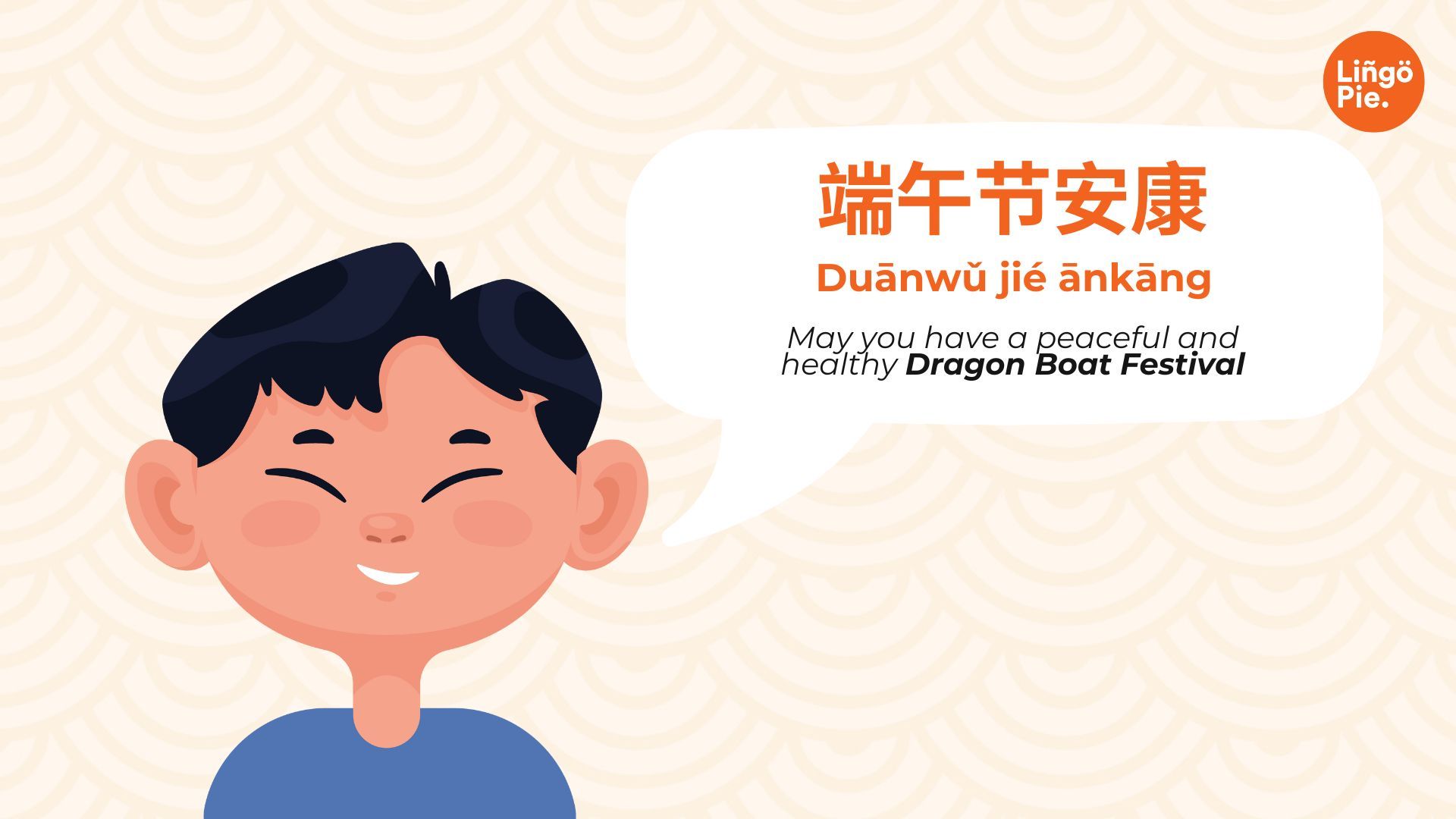
Chinese Words For Dragon Boat
No cultural immersion is complete without learning a few key phrases in the local language. In this section, let's get to know the basic Chinese words related to this dragon boating festival!
| Short English Meaning | Chinese Script | Chinese Romanization |
|---|---|---|
| Dragon | 龍 | lóng |
| Dragon Boat | 龍舟 or 龍船 | lóng zhōu or lóng chuán |
| Dragon Boat Festival | 端午節 | Duān wǔ jié |
| Dragon Boat Race | 划龍舟 | huà lóng zhōu |
| Patriotic poet commemorated | 屈原 | Qū Yuán |
| Rice balls | 粽子 | zòng zi |
| Perfume sachetsr | 香包 | xiāng bāo |
| To eat a rice ball | 吃粽子 | chī zòng zi |
| To wear a sachet | 戴香包 | dài xiāng bāo |
Want To Learn More About The Chinese Culture?
If you're serious about learning about this traditional Chinese holiday and the local language, there's nothing more we can recommend than watching authentic Chinese TV shows and movies! Immersing yourself in contextual content is the best way to learn Chinese and pick up vocabulary and cultural nuances.
That's where a language learning tool like Lingopie can be an invaluable resource. With the advanced Lingopie features, you can actively build your language skills while exploring the rich traditions behind holidays through entertaining native content. It simply transforms the learning process into an engaging cultural journey where you can:
- Master Chinese words and phrases
- Pickup Chinese slang and cultural references
- Dive deeper into the symbolic roots of every Chinese script
Curious? Sign up for a FREE trial today!
FAQs
Why I Can’t Wish People “Happy Duanwu”?
While it may seem natural to simply say "Happy Duānwǔ Jié", the proper festive greeting is "端午节安康" (Duānwǔ jié ānkāng), meaning "May you have a peaceful and healthy Duānwǔ Festival."
This phrasing stems from ancient beliefs that the 5th lunar month, when the Dragon Boat Festival falls, was an unlucky period plagued by illness and evil forces. So rather than a generic "happy" wish, the traditional expression hopes for peace and health.
Where Is The Dragon Boat Festival Celebrated?
The Dragon Boat Festival isn't just contained to China. It's an annual event in places with large Chinese diaspora populations such as Taiwan, Singapore, and Chinatowns worldwide from San Francisco to Vancouver to London. Domestic Chinese communities in cities like New York, Los Angeles, Sydney, and Toronto also host lively racing events and cultural activities.
What Is The Spiritual Meaning Of The Dragon Boat?
In Chinese culture, the dragon is a revered mythical creature - a symbol of immense power, strength, and good fortune. Depicted as a mighty beast that commands the winds, rains, and forces of nature so vital for bountiful crops.
The ornately carved and painted dragon boats used in the festival's iconic racing events pay homage to this sacred dragon emblem. Their sleek, undulating forms are fashioned after the legendary dragon's image. Paddling these vessels was considered an act of honoring the dragon's mastery over the natural world that sustained ancient agricultural societies.
What Are The Characteristics Of The Dragon Boat?
Dragon boats are long, narrow vessels colorfully decorated with fierce dragon designs from stem to stern. The front of the boat features a dragon head with a wide-open mouth, while the back has an upright sculpted tail of the same beast. But these aren't ordinary boats - they seats can fit crews of 20, even up to 50 paddlers to propel them forward with muscle power.
Instead of rudders or sails, the tightly packed paddlers row in sync using wide bamboo-handled oars. A single drummer, standing at the boat's rear section beats out rhythms on a drum to keep everyone paddling in coordinated unison.


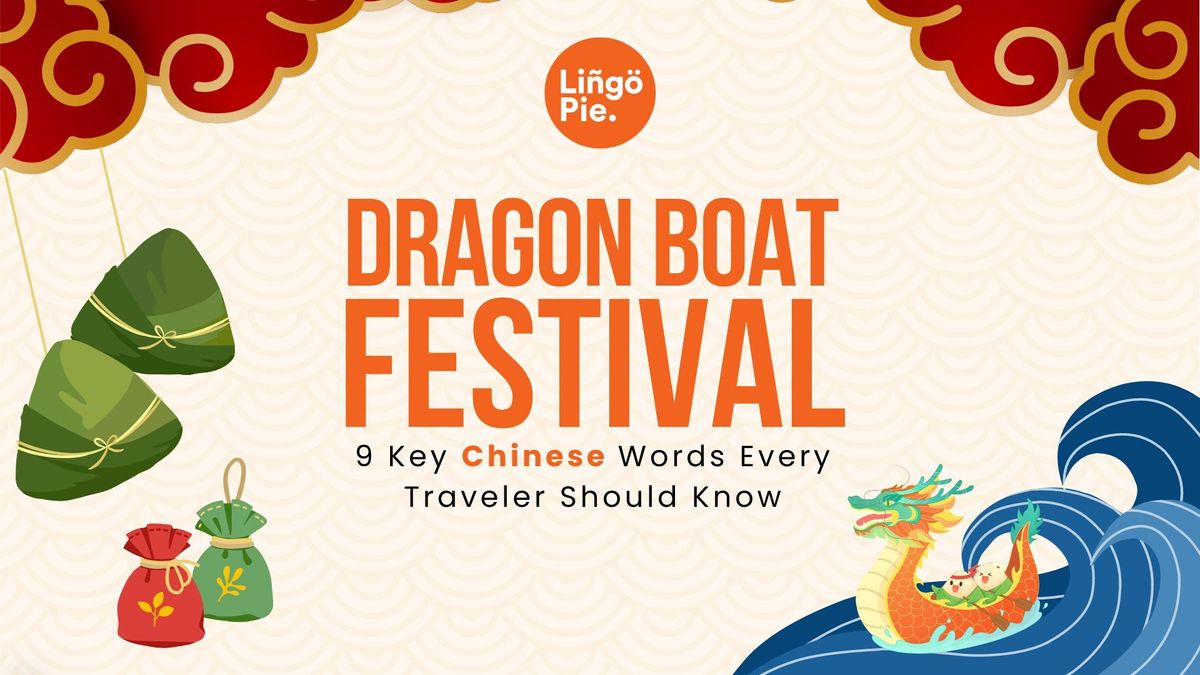

![Lingopie Review: 10+ Top Features For Faster Language Learning [2026]](/blog/content/images/2022/05/Header-Sized-for-Blog-1.jpg)

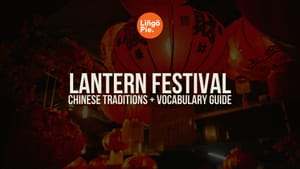
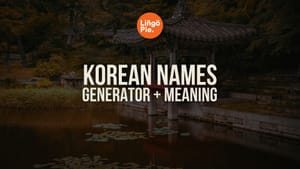
![How To Say Love In Different Languages [120+ Ways]](/blog/content/images/size/w300/2024/11/How-To-Say-Love-In-Different-Languages--120--Ways-.jpg)
